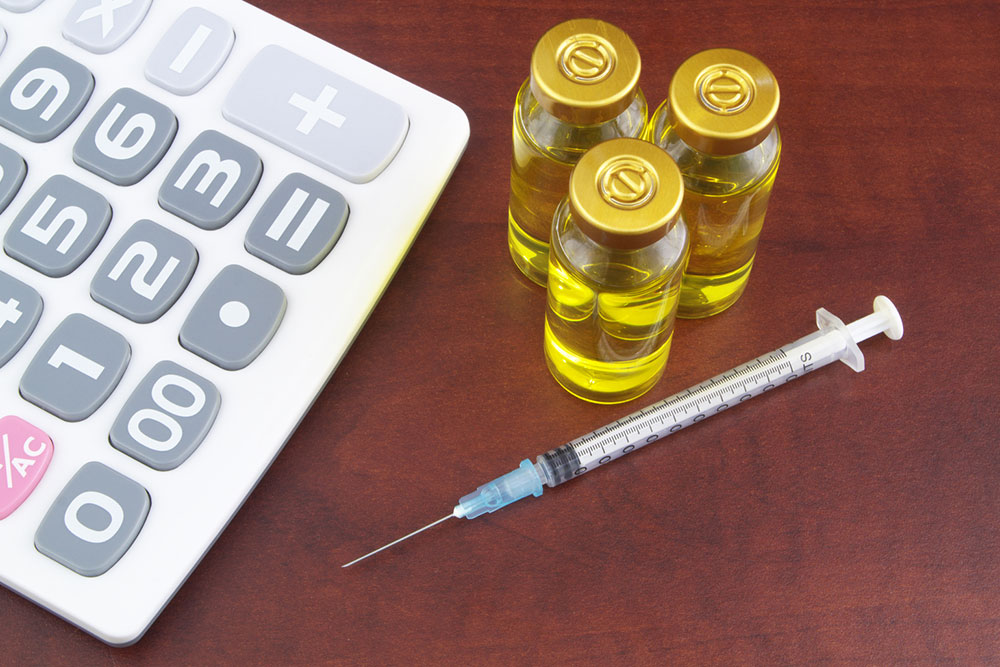10 things to know about the Novavax vaccine

In the search for immunization measures during the COVID-19 pandemic, several vaccines have been developed to boost immunity against the respiratory virus. Here, the Novavax vaccine is one of the options that has gained attention for its distinctive characteristics and potential to contribute to global vaccination efforts. So, here are a few things one should know about the Novavax vaccine, including its development and mechanism of action to eligibility criteria:
1. Vaccine development
The Novavax vaccine, also known as NVX-CoV2373 or Nuvaxovid, was developed by Novavax, Inc., a biotechnology company. The entity has previously worked on developing vaccines for various infectious diseases, including respiratory syncytial virus (RSV) and seasonal influenza.
2. Vaccine technology
The Novavax vaccine operates on a different principle than some of the other COVID-19 vaccines. It uses a protein subunit-based approach, using a small piece of the SARS-CoV-2 virus, called the spike protein, to stimulate an immune response. This protein fragment is produced using a baculovirus expression system, a well-established technology in vaccine development. This approach also involves the use of an adjuvant—a substance that boosts the level of immune response.
3. Authorization of use
The Novavax vaccine has received authorization in the country based on the trial data demonstrating the vaccine’s safety and efficacy in preventing COVID-19. Trials have shown that the Novavax vaccine can help prevent the disease and has demonstrated efficacy against multiple variants of the virus, including the Delta variant. In trials, it has shown efficacy rates of over 90% in preventing symptomatic COVID-19.
It is important to note that the status of vaccine authorizations may change over time with new developments. So, it is advisable to check with relevant health authorities or official sources for the most current information regarding vaccine authorizations.
4. Safety profile
Like all vaccines, the Novavax vaccine may cause side effects, but it has a favorable safety profile. Trials have shown that some may experience mild and transient side effects, such as pain at the site where the prescription was introduced to the body. Further, fatigue, headache, muscle pain, or mild fever may be observed. While the severity of symptoms can vary from person to person, serious adverse events have been rare. This safety record has contributed to regulatory approvals of the vaccine in multiple countries. As with any vaccine, ongoing monitoring ensures that any potential side effects are thoroughly investigated and managed. Overall, the Novavax vaccine’s safety profile underscores its suitability as one of the key immunization measures.
5. Storage
One of the highlights of the Novavax vaccine is its relatively straightforward storage requirements. It can be stored at standard refrigeration temperatures, making it easier to transport and administer, especially in regions with limited infrastructure.
6. Global approval and distribution
The Novavax vaccine has received regulatory approval in several countries and has been distributed as part of national vaccination campaigns in those regions. The vaccine’s ease of storage and efficacy against different variants make it a useful tool in regions where access to other vaccines is limited.
7. Booster potential
The Novavax vaccine is also being explored as a potential booster dose for those who have previously received other COVID-19 vaccines. Early studies suggest that it may significantly boost immunity when used as a booster shot, even against emerging variants.
8. Research, development, and monitoring
Novavax may continue to invest in research and development to improve its vaccine and adapt it to address emerging variants of the virus. This commitment to ongoing research is a key step for dealing with the ever-evolving virus. Additionally, the safety and efficacy of the Novavax vaccine, like all COVID-19 vaccines, continue to be monitored closely. Ongoing research may help refine vaccination strategies and address any emerging challenges.
9. Combination with other vaccines
In some regions, health authorities have been considering mixing and matching different COVID-19 vaccines to optimize protection. The Novavax vaccine may be part of such strategies, offering additional flexibility in vaccination campaigns.
10. Eligibility criteria
Eligibility for the Novavax vaccine may vary depending on the country and the specific guidelines set by local health authorities. Here are some of the factors typically considered for determining eligibility:
Age: The Novavax vaccine was initially approved for adults, typically starting at 18 years of age or older. However, eligibility criteria have expanded to include those over the age of 12.
Health status: The Novavax vaccine is generally recommended for those without contraindications or allergies to its components. People with certain health conditions or severe allergies may have to discuss their eligibility with their healthcare providers.
Prior vaccination: Based on regional policy, the Novavax vaccine may be recommended as a primary vaccination or as a booster shot for those who have already received other COVID-19 vaccines.
National and regional policies: Eligibility may also be influenced by national or regional vaccination policies and strategies, which could evolve over time based on public health needs and available vaccine supply.
Additionally, eligibility guidelines regarding pregnancy and breastfeeding may vary. So, if pregnant or breastfeeding, one should consult healthcare professionals for personalized guidance.
As the Novavax vaccine becomes more widely available, individuals have a role to play in curbing the spread of COVID-19. Here, getting vaccinated and following public health guidelines, such as social distancing and maintaining good hygiene, remain essential in preventing further spread. Further, such immunization measures may contribute to achieving herd immunity within communities, reducing the impact and spread of the infection if contracted. It is crucial to note that eligibility criteria for vaccines, including Novavax, may change over time as new information becomes available and vaccination campaigns progress. So, it is important to check local health authority updates or consult healthcare providers for the latest information on eligibility and vaccine availability in the area.
Sources:
https://www.who.int/news-room/feature-stories/detail/the-novavax-vaccine-against-covid-19-what-you-need-to-know
https://www.cdc.gov/vaccines/covid-19/info-by-product/novavax/index.html
https://www.yalemedicine.org/news/novavax-covid-vaccine
https://www.fda.gov/vaccines-blood-biologics/coronavirus-covid-19-cber-regulated-biologics/novavax-covid-19-vaccine-adjuvanted



